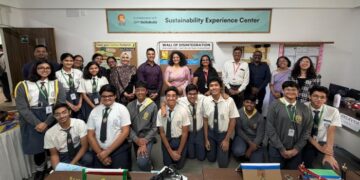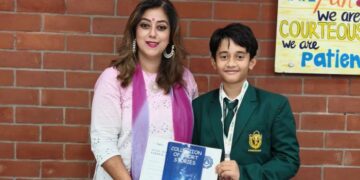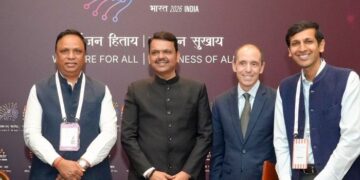The Aam Aadmi Party (AAP) has found a new strategy to get better of the BJP on patriotism. AAP run Delhi state government, on September 28 in a smart move rolled out a new ‘Deshbhakti’ (Patriotism) curriculum for schools to inculcate pride, love and respect for the country in the mind of every child by making children realize that patriotism should not be reserved just for special occasions like Independence Day or Republic Day, but in everyday life and routine work. The city government chose the 114th birth anniversary of Shaheed Bhagat Singh, the nationally revered revolutionary youth freedom fighter, who was hanged by the British on March 23, 1931 at an age of 23 as the day of launching this new curriculum by the chief Minister Arvind Kejriwal.
While the launch of the new curriculum may have been a carefully thought political move of diluting BJP’s self-professed ‘copyright’ on nationalism, yet this new experimentation comes an addition on lines of Happiness Curriculum and Entrepreneurship Mindset Curriculum introduced earlier by AAP government to infuse new energy into school education. Deskbakhti curriculum appears a logical next step. The curriculum aims to achieve eight learning outcomes: self-awareness, self-confidence, problem-solving, practising constitutional values, pluralism and diversity, environmental sustainability, ethical social behaviour, as well as collaboration and social/civic responsibility.
Speaking during the launch event, CM Kejriwal said that patriotism is inherently within everyone, “Our effort is to make children self-aware and transform their patriotism into a flame. Our aim is to make students good citizens, god professionals, nation builders, respectful to woman and against crimes.” He added that this was a landmark moment in the history of country and will spark spread of similar interventions in the whole country.
A five-member committee constituted two years ago to recommend a framework for this curriculum under Dr. Renu Bhatia, Principal, Sarvodaya Kanya Vidhyalaya Moti Bagh, and Sharda Kumari, former Principal, DIET R.K Puram after wide consultations with students, teachers, parents, educators, civil society organisations and extensive literature review in August this year presented their recommendations to State Council of Educational Research and Training (SCERT) of Delhi, which adopted the framework of ‘deshbhakti’ curriculum.
The curriculum to be introduced in all classes, ie K-12, across Delhi government schools (1028) as these reopen, will consist of stories about freedom fighters and other patriotic literature including lyrics. Importantly, there will neither textbooks nor exams. The curriculum has been divided into three sections: from nursery to Class 5, Classes 6 to 8 and Classes 9 to 12. The government has released the teacher’s manual for Classes 6 to 8 and 9-12, along with a handbook comprising 100 stories of freedom fighters. The handbook for nursery to Class 5 will be unveiled when schools reopen for these sections.
There will be one ‘Deshbhakti’ class of 40 minutes every day for students from nursery to Class 8, and two sessions per week for those in Classes 9 to 12. Every class will start with ‘Deshbhakti Dhyan or meditation in which students will be asked to share their thoughts about their gratitude for the country and pledge respect for the nation. For Classes 9 to 12, teachers will facilitate group discussions on related topics and activities. The topics under patriotism curriculum include taking responsibility towards the country and its progress, constructive criticism, respect for and harmonious coexistence with others, critically thinking about issues confronting the country, comprehensive conception of patriotism, linking patriotism to the lived realities and everyday actions of students and working for the country’s development with pride and honesty.
The students will be asked to maintain a new notebook or diary as “deshbhakti diary” which will be a reflective journal to document learnings, thoughts and feelings along the journey of the Deshbhakti Curriculum. Students will be assessed through a 360-degree evaluation involving self-assessment, peer assessment, and assessment by the teacher. There will be no formal examination or grading system; the emphasis is on observing and assessing development of values, behaviour and actions.
According to Adhitya Iyer, the Mumbai-based author/speaker who is well known for his views transformative education and his iconic book ‘The Great Indian Obsession: The Untold Story of India’s Engineers’ the intention of AAP on education is always good. “If you look globally the sense of identity as a nation is reducing not only in India but across. Therefore the timing and intent of the initiative is brilliant. But we have to see in terms of execution where will it get. A lot of our glory comes from the past and not necessarily everything from the freedom struggle. This has to move beyond tape record and romance of diversity, plurality, which are old-fashioned and cannot really motivate the new generation and create sense of pride in them. The work is to dig in details from history, architecture to warfare, design thinking and softpower, etc. There is a lot that is not well-known not capture into public imagination and really should make us proud.”
At the same time, critics are clearly not impressed. Activist lawyer and President of All India Parents Association, Ashok Agarwal Delhi’s Education System has become helpless during pandemic with teachers doing various nonteaching assigned nonteaching in the name of DDMA which includes Covid duties from vaccination to challan collecting etc. He adds: “The students are totally deprived of teaching/learning process, a non-academic is the head of SCERT, but this government is happy following HAPPY following Happiness Curriculum while children are sitting at home and now according to them will happily learn Deshbhakti Curriculum. Officials have become workers of party. Politics driven education is clearly not in the interest of education as well as children.”
As the Delhi government’s intention is to make every child read 700-800 stories and 500-600 patriotic songs and poems in his schooling years as per Manish Sisodia, Deputy CM who is also the education minister, it will be interesting to see the pedagogy and implantation of the curriculum as the schools reopen to capacity early next year.
https://twitter.com/AamAadmiParty/status/1442869744697106439












